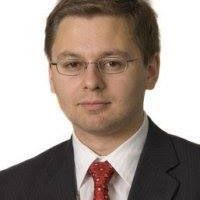The first major investor in Ukraine under the Canadian-Ukrainian Free Trade Agreement has accused oligarchs who control a ferroalloy plant in Dnipropetrovsk Oblast of trying to steal its 10.5-megawatt solar plant.
In a Nov. 20 news release, Calgary-based TIU Canada, a renewable energy investor, said the Nikopol Ferroalloy Plant’s “main shareholders” – Ihor Kolomoisky, Hennadiy Boholyubov and Victor Pinchuk – are responsible for disconnecting the company from the electricity grid located on the plant’s premises.
The alleged “illegal disconnection” eight months ago has so far caused the company 1.5 million euros ($1.8 million) in losses, according to the news release.
This is a clear case of oligarchs pressuring a foreign investor and trying to steal assets,” said TIU Canada CEO Michael Yurkovich.

TIU Canada CEO Michael Yurkovich
He added that his company had invested more than $65 million in Ukraine since 2016 and voiced hope that “this [asset stealing] was a thing of the past in Ukraine, unfortunately, such practices continue.”
The hearing in the dispute is scheduled for Dec. 16 at the Kyiv Commercial Court and a preliminary hearing took place on Nov. 18. Yurkovich said that “we are mustering our resources and will fight this case in Ukraine, Canada, or any jurisdiction needed to win.” He continued: “corruption must not be allowed to continue in Ukraine, and the rights of investors must be protected.”
A spokeswoman for Pinchuk’s Eastone Group investment advisory group on Nov. 23 gave this response: “This matter lays within the authority of the company’s operational management, which is performed by the management of Nikopol Ferroalloy Plant. Neither Victor Pinchuk nor the companies affiliated with him nor EastOne have such authority and do not control the operations of Nikopol Ferroalloy Plant.”
Kolomoisky was not reachable at two numbers for comment and numerous calls to the Dnipropetrovsk region-based plant’s press service went unanswered the same day.
The row between the plant’s shareholders and the Canadian company was described as a “business dispute” by Artem Semenyshyn, executive director of the Solar Energy Association of Ukraine.
“The two companies have agreed on the joint use of the substation [at the plant]. One is as a producer of electricity, the other is as a consumer,” he said at a news conference at Interfax-Ukraine on Nov. 20.
At the same time, Semenyshyn said: “Indeed, it is very bad when we lose the already built ‘green’ generation facilities, which are now idle and do not increase the share of clean electricity.”
Kolomoisky was a key media backer of President Volodymyr Zelenskiy’s election campaign last year and has been accused of company takeovers, of once running the country’s biggest lender as a multibillion-dollar pyramid scheme, and money laundering in the U.S.
He has denied wrongdoing and maintains he is the rightful owner of PrivatBank, the country’s largest private lender that the government took over four years ago after an international audit found a $5.5 billion hole on its balance sheet.
Unlike other renewable energy investors in Ukraine, TIU had the advantage of grid connection at the ferroalloy factory and built the plant by January 2018. Its substation is located on NFP’s premises and it controls road access to the solar plant.
According to Business Ukraine, Kolomoisky last year “offered to buy the plant” at an undisclosed price.
The Canadian company alleges that Nikopol Ferroalloy Plant gave it notice on Dec. 23 that it would be ultimately disconnected from regional power distributor DTEK Dnipro Grids – controlled by Ukraine’s richest billionaire Rinat Akhmetov – “to make repairs.”
The disconnection took place the following year on March 1.
TIU’s local unit, Vita Solar, started operation in Ukraine four years ago and also has an 11-megawatt solar station in Mykolayiv Oblast, an additional 33 megawatts of solar electricity production in Odesa, for a total of 54 megawatts nationwide.
Its parent company is Calgary-based Refraction Asset Management.
